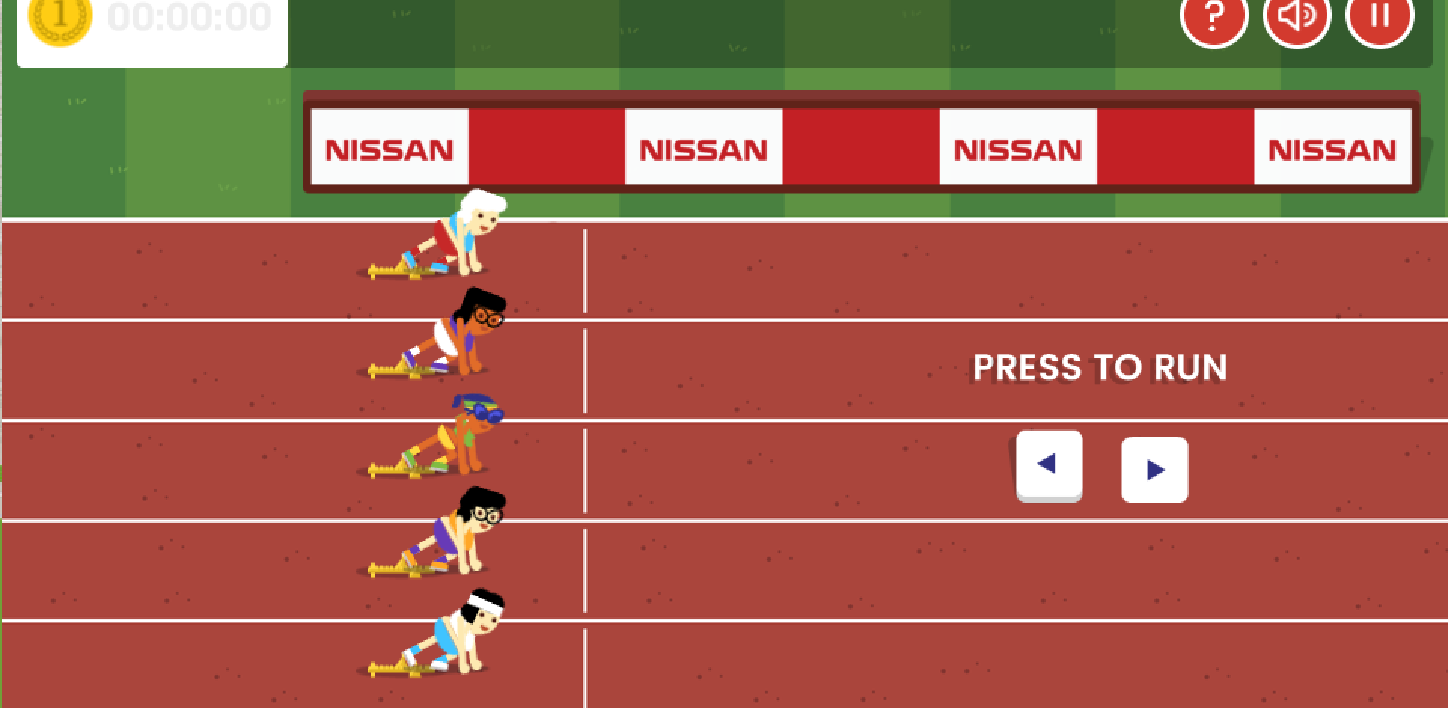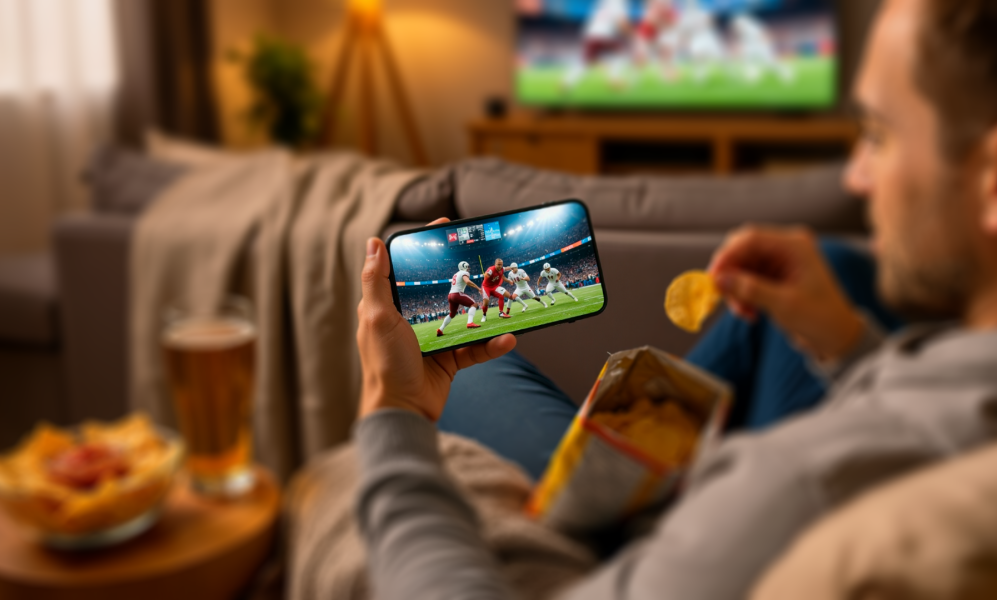Despite Postponed Olympics, Brands Can Keep Their Head in the Game

Capping off a raft of regional and global event cancellations, the International Olympic Committee announced that the 2020 Tokyo Olympic Games will be postponed until next year. The announcement is toughest for the athletes who have worked so hard over the years to qualify and compete in the Games, but it’s also tough on audiences–many desperate for entertainment amidst social distancing, seeking something to unite under and look forward to.
As brands rethink their Olympics media and advertising strategies, they must consider how they can still continue to connect and inspire today’s consumers. While the Olympics’ postponement certainly throws a wrench into brands’ advertising strategies for the summer, there’s still opportunity for them to refocus plans and offer comfort and connection to audiences who need it.
Earlier this year, The Drum estimated that the Tokyo Olympics and Paralympics, among other major events, would drive global growth in ad spend by 3.9% in 2020. Now, brands are wondering how they can reallocate their budgets—or their big ideas—to next year, shifting plans that were made months, if not years, in advance. This includes not just traditional campaigns, but also in-person and in-store activations intended for attendees. Here’s how brands can kickstart and rethink and rebuild their strategies for 2020.
There Are Still Big Needs to Fill, But Strategies Must Change
While many brands might aim to reallocate budgets and current strategies to next year, there’s still a real need to keep relevant—and customer needs aren’t going anywhere, either. “This doesn’t mean brands can stop engaging with their audiences this year,” Michel de Rijk, CEO APAC at S4Capital, told host Dan Murphy on CNBC’s Asia Squawk Box. “They need alternative plans.”
The possibility that social distancing will remain into the summer—or that consumers will hold onto new digital habits and behaviors that are emerging right now—will elevate the role that digital must play in alternative campaigns and creative experiences. “A lot of these activities that marketers were planning to do were in-store and offline activations,” de Rijk said. “But because of that change in user behavior, those now need to be digital. You’ll see a lot of innovation in this space.”
That said, there’s no direct, one-to-one translation of an Olympic experience from in-person to digital: imagine mingling with people from around the world and being inspired by watching the games in-person. Brands certainly shouldn’t copy and paste existing strategies to a virtual space, but they do have an opportunity to innovate by blowing out specific parts of their narrative.
Digital engagements “have the power to bring consumers together within a shared experience.
For example, consider how messaging around the Olympics usually focuses on determination and coming together as a global community—a message that resonates well with a world transformed by a pandemic. It also sits well with what digital experiences uniquely achieve. “By the nature of digital and creating these virtual brand engagements, [brands help] entertain audiences no matter where they are and have the power to bring them together within a shared experience.”
For Resonance and Relevance, Play Toward New Consumer Behaviors
Digital behaviors have shifted significantly over the span of the past few months, and we still can’t say for certain how the landscape will look months further down the line. Brands must be proactive in recognizing shifting needs, behaviors and priorities for today’s audiences to strategize and refocus their efforts on supporting their audience.
One way to do this is through social listening to stay up-to-date with what matters most to your audiences and to identify new ways that they’re connecting with one another. This attention toward social can also clue you into interesting, new user behaviors that you can tap into to find value for consumers—like “cloud clubbing,” in which DJs began livestreaming their sets to at-home audiences in China before COVID-19 made its way west.
What you'll see in 2021 is a blend of the original plans that brands had scheduled, as well as learnings from changes in consumer behavior.
By remaining up to speed on conversations and emerging digital communities, brands are better prepared to connect with audiences in meaningful ways. For example, without live sports to watch, consumers are gathering online to compete in video games (or watch others play via livestream).
We Look Forward to More Innovation—and More Voices
While digital transformation has widely been a slow and incremental process for some brands, it’s become clear so far this year that strong digital maturity is essential to continue meeting audience needs. And that importance isn’t just temporary: “I think what you’ll see in 2021 during the Olympics is a blend of the original plans that [brands] had scheduled, as well as the learnings that they are having in the coming 12 months in a forced virtual environment because the consumer behavior has changed,” de Rijk told Asia Squawk Box.
And without attention focused on a single global event, there’s more room for all brands to connect with their audiences. “The brands who decided not to have a lot of activity out there during the Olympics because of the sheer amount of activity happening through Olympic advertisers now have the opportunity to get it back,” says de Rijk. This means even small to mid-size brands can look for ways to break down and build more impactful experiences.
The postponing of the Tokyo Olympics presents a double whammy: brands not only have to strategize again on their messaging in the summer when the games were originally meant to take place but will also want to apply new learnings to their Olympic plans for next year, too. By aligning strategic goals with emergent consumer behaviors, brands adeptly pivot to engage and support their audiences in better, value-added ways.
Related
Thinking
-
![A person on a couch holds a smartphone displaying a football game, reaching into a chip bag, with another football game on a TV and snacks in the background.]()
Blog post
The New Playbook to Extend a Sports Spot into a Brand World By Tim Gunter 4 min read -
![A portrait of a woman in profile, facing right, with her blonde hair blurred as if in motion. She wears a black turtleneck against a dark, moody background featuring abstract magenta and purple rectangles and vertical lines. Her face is illuminated, while the rest of the image has a blurred, dreamlike quality.]()
Blog post
What 2025 Revealed About AI, and What It Unlocks in 2026 By Monks 5 min read -
![A pale pink "New message" window with thin black outlines floats against a pastel gradient background of lavender, pink, and peach. Inside the window are "To" and "Subject" fields, and a rounded rectangular "Send" button in the bottom right corner. The window has a simple close "X" icon in the top right.]()
Blog post
Building Email Inbox Trust and Strong Sender Reputation through Disciplined Warming Strategies By Bridget Creach 8 min read
Sharpen your edge in a world that won't wait
Sign up to get email updates with actionable insights, cutting-edge research and proven strategies.
Monks needs the contact information you provide to us to contact you about our products and services. You may unsubscribe from these communications at any time. For information on how to unsubscribe, as well as our privacy practices and commitment to protecting your privacy, please review our Privacy Policy.



